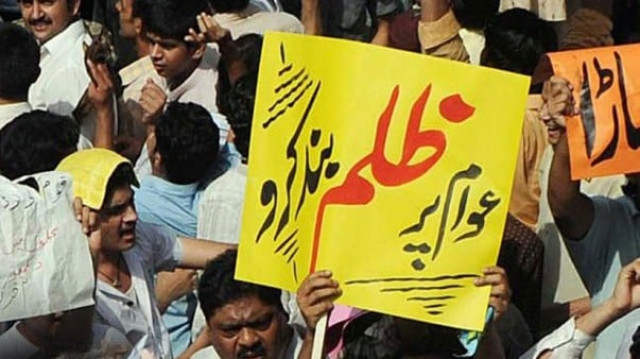Back to dark ages: End of loadshedding by 2018 a joke, say people
Urban areas in Peshawar facing 12 hours of power cuts, rural areas 14.

People no longer believe the government’s promises about electricity. Water and Power Development Authority (Wapda) Chairperson Shakeel Ahmed Durrani’s recently claimed that power cuts will end by 2018, when reiterated, are met with indignation.
“I am sure the crisis would continue even after 2018,” said Suhail Khan, a retailer in Peshawar. “The government is just moving the clock forwards and backwards, which is nothing but a tactic to fool the gullible citizens,” he added.
Suhail said, “It seems as if we are going back to the dark ages, thanks to Wapda.”
Irshad, a spare parts dealer, said his business had come to a standstill due to prolonged power outages. “We cannot sleep at night either due to load shedding; our lives have become miserable,” he added.
Aftab, a general store owner, said, “Customers have stopped buying ice cream as is gets melted, while the demand for cold drinks has also declined because they cannot be refrigerated.” He suggested the government to build small dams to reduce the demand-supply gap.
Others have resigned to their fates. Shams, a tailor said, “Predicting when electricity comes and goes has become a game for us.” Just as well, with all the customers that he has lost recently due to power cuts.
Rehana, a housewife, said the government should turn to solar energy to resolve the power shortage. She was fed up with frequent power outages and power fluctuations, which broke down her airconditioner.
People in Gulbahar, Hashtnagri, Nothia, Sethi Town and other areas are also facing water shortages.
PESCO is carrying out 10 to 12 hours of load shedding in urban areas of Khyber-Pakhtunkhwa, while in rural areas 12 to 14 hours of power outages are being experienced, according to those who were interviewed.
However, PESCO officials told The Express Tribune that they were cutting power for seven to eight hours in the entire province.
Published in The Express Tribune, July 9th, 2011.



















COMMENTS
Comments are moderated and generally will be posted if they are on-topic and not abusive.
For more information, please see our Comments FAQ